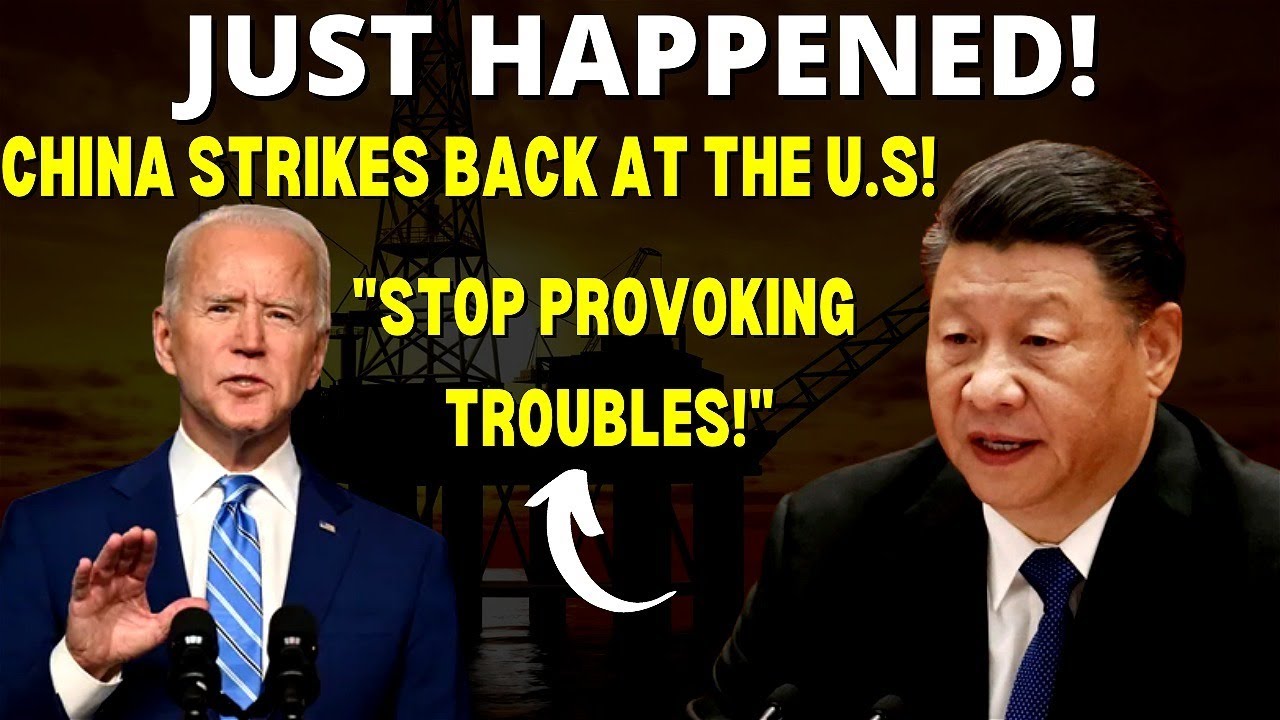
US-CHINA Tensions JUST GOT WORSE! US PROVOKES China By Sailing Warship Through Taiwan Strait
Keep up to Date & Bypass the Big Tech Censorship
Get uncensored news and updates, subscribe to our daily FREE newsletter!
A US naval vessel transited the Taiwan Strait on January 5 to what the United States claims to be only “standard operations”, but China views it as a threat.
The US Navy vessels and those from some of our closest allies, like the United Kingdom and Canada, have regularly transited this strait in recent years.
It enrages China, which claims Taiwan despite the will of its freely elected government. The US Navy announced in a statement that the Chung-Hoon guided-missile destroyer of the Arleigh Burke-class, completed the passage.
| Recommended Books [ see all ] | ||||
|---|---|---|---|---|
 |  |  |  |
 |
And it was said in the statement that Chung-passage Hoon’s across the Taiwan Strait proved the United States’ dedication to a free and open Indo-Pacific.
China’s envoy to the United States, Liu Pengyu, issued a statement expressing the country’s strong opposition to the action.
He demanded that the US immediately cease its efforts to sow discord, inflame tensions, and destabilize the Taiwan Strait.
Liu Pengyu also said military vessels regularly show off their might under the pretext of exercising their right to free passage. And this isn’t about preserving the region’s open and free environment.
The statement also emphasized China’s readiness to respond to any threats or provocations at any moment, saying the country will remain on high alert. China will also protect its national sovereignty and territorial integrity with unwavering determination.
According to Taiwan’s Ministry of Defense, the ship was heading north while transiting the strait. They said its armed forces had closely watched its passage and found nothing out of the ordinary.
You see, the defeated Republic of China government retreated to Taiwan in 1949 following a civil war with the communists who created the People’s Republic of China. Since then, the narrow Taiwan Strait has frequently been a source of military concern.
Meanwhile, the United States and Taiwan do not have diplomatic relations. But it must give the island a way to protect itself by law.
China has never denied the possibility of resorting to military means to control Taiwan. On the other hand, Taiwan has declared its intention to defend itself firmly in the event of an assault.
They’re arguing that Beijing’s claims to sovereignty are null and invalid since the People’s Republic of China has never ruled Taiwan.
Moreover, the United States Air Force aircraft flew in the contentious South China Sea last month when a Chinese military plane got within three meters of it. It was compelled to do avoidance maneuvers to prevent a crash in international airspace.
And the United States said Chinese military planes have been acting increasingly risky in the days leading up to the close encounter.
The Taiwan Strait had its highest level of tension in over 30 years in August.
Beijing planned joint military drills surrounding the island in reaction to a visit to Taiwan by US House Speaker Nancy Pelosi.
In addition, Beijing stopped or terminated eight formal military talks and cooperation channels with Washington.
The island of Taiwan was subjected to unprecedented provocation. In fact, ballistic missiles were being fired over the island, and air and naval activities were crossing the centerline and skirting the edge of Taiwanese territory.
Furthermore, the number of cyber assaults in Taiwan was 23 times greater than the daily record.
The timing of Pelosi’s trip was particularly delicate. And the months prior saw a steady increase in tensions between Washington and Beijing as a result of China’s implicit backing for Russia’s invasion of Ukraine.
When President Joe Biden and Chinese President Xi Jinping spoke recently, Biden failed to bring up the possibility of tariff reductions.
Meanwhile, Xi stated that the United States was playing with fire with its Taiwan policy.
US-Chinese relations remained stagnant despite persistent efforts at the highest levels of government to improve them.
The visit also coincided with busy political schedules in both Washington and Beijing.
In May, the top Chinese diplomat warned that the Chinese government would respond forcefully to any plan, language, or action taken by the United States to constrain China.
Since Tsai Ing-wen was elected president of Taiwan in 2016, cross-strait dynamics have been troubled by three interrelated trends.
First, the political climate on the mainland has become more restricted and authoritarian. Meanwhile, the people in Taiwan have become more distrustful of Beijing.


